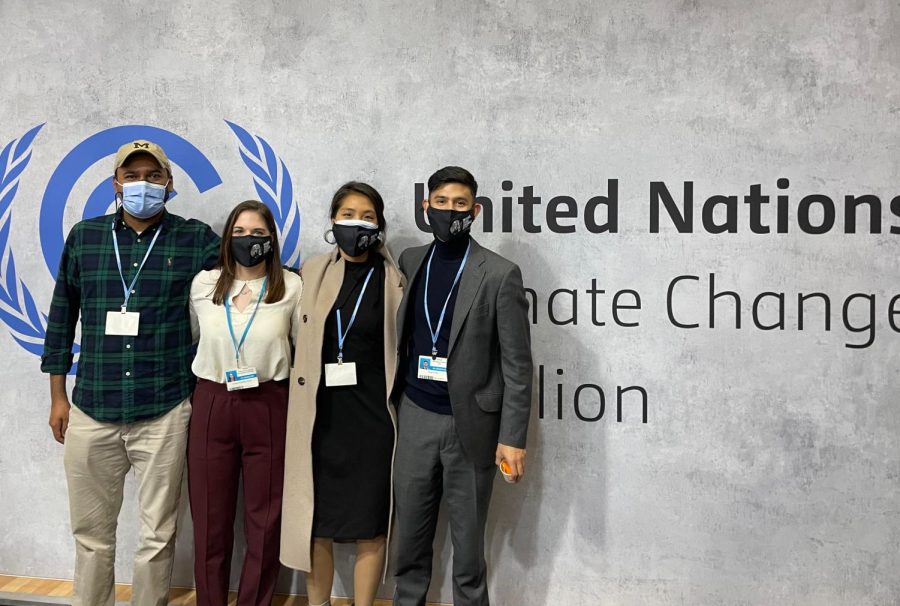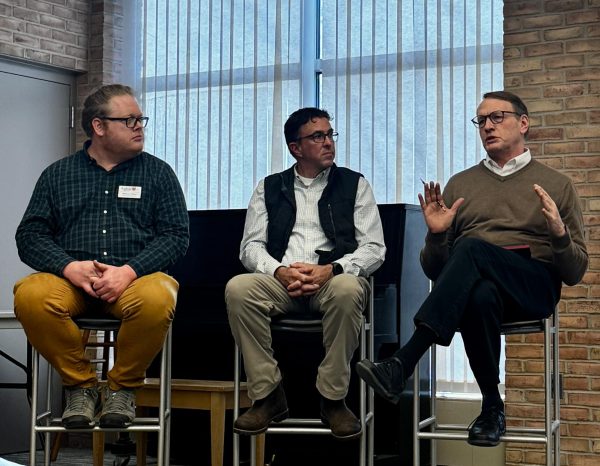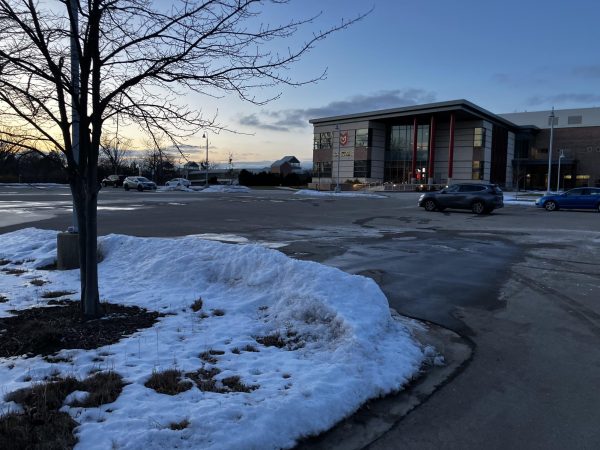Calvin alum takes environmental vision to UN climate conference
Yeri Kim, pictured second from right, along with two of her project teammates from the University of Michigan on her left and a UNFCCC participant on her right.
From Oct. 31 to Nov. 12, world leaders and famous delegates from around the globe gathered in Glasgow for the 2021 United Nations Climate Change conference, or COP 26. To this global conversation, a Calvin alum brought her voice and vision.
Yeri Kim, Calvin class of 2019, who graduated with business and environmental studies majors and a Chinese minor, presented her master’s project from the University of Michigan School of Environment and Sustainability to the Climate Technology Center and Network side conference in Glasgow. As a branch of the United Nations Framework Convention on Climate Change, the CTCN promotes the transfer of “low carbon and climate resilient” development technologies to developing countries and provides technological solutions and advice to individual countries.
At COP 26, individual countries submit their nationally-determined contributions, or NDCs, which include plans for climate action, targets and government policies. For the purposes of the UNFCCC, U.N. countries are split into categories, such as the rich and developed G7 countries, Least Developed Countries and Small Island Developing states.
The NDCs of these latter two often involve requests of needed technologies. “Some of these countries could be trying to transition towards solar energy, or need more energy-efficient cooking stoves,” Kim said.
As her master’s project at the University of Michigan, Kim worked with other students to create a database of the nationally determined contributions of LDCs and SIDs. This database provided the CTCN a visual analysis of each country and region’s technological needs, as well as their requests for environmentally efficient development.
When she first came to Calvin, Kim was a business major and Chinese minor. “I knew my skill sets were there,” Kim said, “But I didn’t exactly know what I wanted to do.” When she took a biology course with Professor Dave Warners in her first year here, however, Kim “completely fell in love with environmental studies.”
As a Korean who grew up in rural northern Thailand, Kim began to connect concepts from class to her life experiences, and immediately recognized the obvious impacts of climate change on the lives of those most vulnerable.
Warners remarked that Kim was already interested in helping the poor economically when she first came to Calvin. As she progressed through his class, Warners said, she started seeing the preservation of their environmental welfare as an important part of helping the poor as well.
“I want to contribute to the place I grew up in so that livelihoods can be made more sustainable and the voices of sustainability can be better heard in government,” Kim said.
During her time at Calvin, Kim interned with the Plaster Creek Stewards. “The experience opened my eyes to how we can use local plants, people and community to take care of the environment,” she told Chimes. “It has made me see the future of my career as using these ecological practices to help communities and to reduce emissions.”
Observing that more spaces are being opened to those interested in environmental justice and sustainability issues, Kim encouraged students at Calvin interested in the same career path to pursue these interests and passions.
“It is true that it’s hard to get a job in this field, and that there are hard skills involved, but there is a slow path that people are paving for us,” Kim said. “Within the U.N. climate sphere itself, youth and indigenous voices are being more heard and even included in policy statements.”
“Yeri was a remarkable student who was bold, cared deeply about these issues and never shied away from leading,” Warners said. He hopes that Kim can be an inspiration to other students interested in sustainability issues, saying that “There are many I see at Calvin who are similarly remarkable.”







